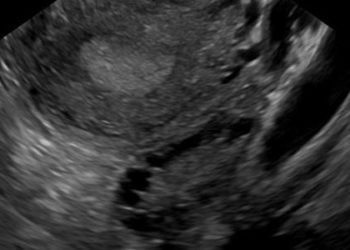Superior long-term outcomes of bariatric surgery compared to medical and lifestyle management for patients with type 2 diabetes and obesity
1. After 7- and 12-year follow-ups, there was superior glycemic control after bariatric surgery for the management of type 2 diabetes (T2D) in people with obesity compared with medical and lifestyle management.
2. There was also less diabetes medication usage and higher rates of diabetes remission in the group who underwent bariatric surgery.
Evidence Rating Level: 1 (Excellent)
Study Rundown: T2D is a widespread and costly condition globally. Limited evidence suggests bariatric surgery may be superior to other treatments for type 2 diabetes, but it’s typically reserved for those with a body mass index (BMI) of 35 or higher due to study limitations, with few opting for surgery. Additionally, while some medications mimic the weight loss effects of surgery, they are expensive, lack long-term efficacy evidence, and necessitate ongoing use to sustain weight loss. Previous findings indicated that bariatric surgery remains superior in achieving and maintaining T2D remission, however this study provided extended follow-up data for 7 and 12 years after randomization. In this study, the Alliance of Randomized Trials of Medicine vs Metabolic Surgery in Type 2 Diabetes (ARMMS-T2D) consortium analyzed data from four US single-center randomized trials to assess the long-term effectiveness, durability, and safety of bariatric surgery compared to medical and lifestyle treatment for type 2 diabetes, making it the largest and most extensive follow-up analysis to date. This study found that compared to medicaland lifestyle intervention, bariatric surgery yielded superior glycemic control, along with reduced usage of diabetes medication and increased rates of diabetes remission. One limitation of the study was the discrepancies in the original trial protocols and the lack of consistent assessment for certain diabetes complications like retinopathy. This inconsistency could affect the reliability of the findings. In conclusion, the findings, in conjunction with existing evidence, substantiate the utilization of bariatric surgery as an effective therapeutic approach for managing T2D in individuals with obesity.
Click to read the study in JAMA
Click to read accompanying editorials in JAMA and JAMA Surgery
In-Depth [randomized controlled trial]: This study is a pooled analysis from four US single-center randomized trials conducted between May 2007 and August 2013, with observational follow-up through July 2022. The study population included individuals with a diagnosis of T2D, BMI of 27 to 45, and age of 18 to 65 years. The primary outcome measured the difference in HbA1c percentage change between groups over 7 years, with additional data up to 12 years for those reaching that point before study closure. Secondary outcomes assessed changes in HbA1c levels over time, attainment of HbA1c less than 7.0%, and diabetes remission criteria. Despite starting with higher initial values, individuals in the bariatric surgery group consistently maintained significantly lower HbA1c levels compared to those in the medical/lifestyle group throughout the study period (P < 0.001). By the 7-year mark, the mean HbA1c decreased from a baseline of 8.2% to 8.0% (difference, 0.2% [95% confidence interval (CI), −0.5% to 0.2%]) in the medical/lifestyle group, while in the bariatric surgery group, it decreased from 8.7% to 7.2% (difference, 1.6% [95% CI, −1.8% to −1.3%]). At year 7, diabetes remission rates were 6.2% in the medical/lifestyle group and 18.2% in the bariatric surgery group (odds ratio, 3.4 [95% CI, 1.3-9.2]; P = 0.02), and this disparity remained statistically significant at 12 years (P < 0.001). The rates of diabetes medication use were similar between the groups at baseline, and there were no significant changes over time in the medical/lifestyle group (P = 0.19 at year 7 and 0.12 at year 12); however, in contrast, medication usage significantly decreased from 97.6% at baseline to 38.0% at year 1 in the bariatric surgery group and remained significantly lower compared to baseline during follow-up (60.5% at year 7; P < 0.001).
Image: PD
©2024 2 Minute Medicine, Inc. All rights reserved. No works may be reproduced without expressed written consent from 2 Minute Medicine, Inc. Inquire about licensing here. No articleshould be construed as medical advice and is not intended as such by the authors or by 2 Minute Medicine, Inc.









